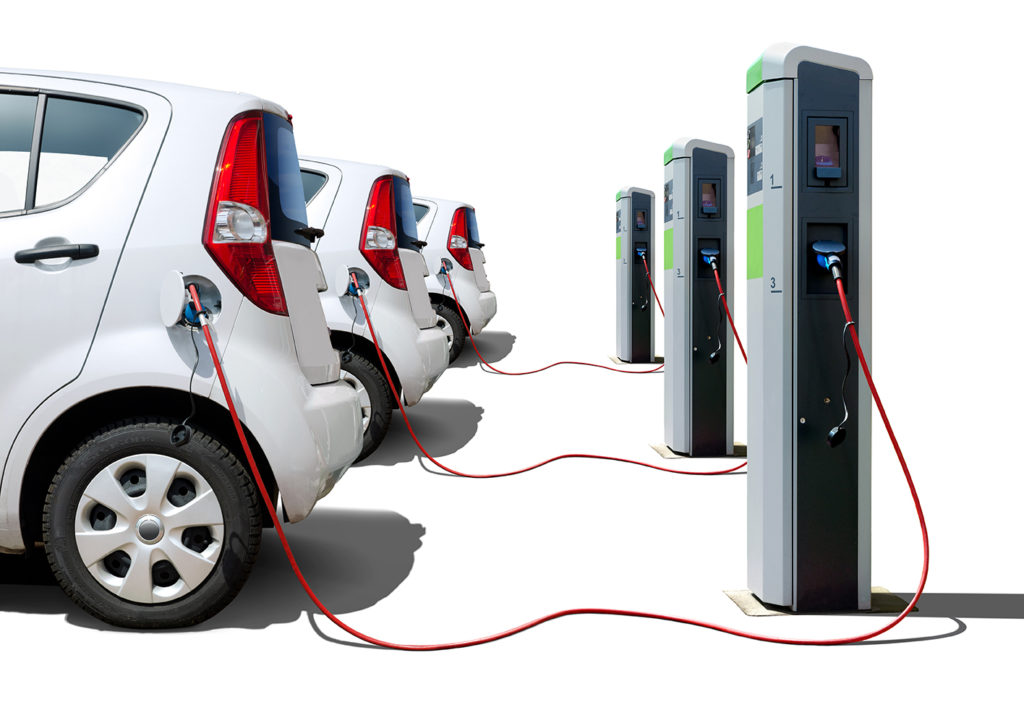The business case for electric fleets has been building in recent years. The number of companies switching from traditionally fuelled vehicles is gathering pace. As a fleet manager you may be debating whether now is the right time for your business to begin adopting the new technology. We analyse below the key considerations for EV fleet managers including your options when it comes to arranging commercial fleet insurance for electric vehicles.
Is it Still Too Early to Switch to Electric Commercial Vehicles?
The combination of improved technology, government legislation and changing consumer priorities is resulting in a noticeable shift towards electric. According to influential trade association The Society of Motor Manufacturers and Traders (SMMT) the sale of battery powered electric vehicles is up 165% in 2020. In fact the purchase of all types of alternatively fuelled vehicle registrations accounts for 31.9% of the UK market up to September.
Some big businesses are already beginning the process of upgrading their enormous fleets. Aiming to become carbon-neutral by 2040, Amazon has ordered 1,800 Mercedes-Benz electric vans for its European courier fleet, some of which will operate on UK roads. Britain’s second largest commercial fleet owner, the BT Group, is currently trialling a small fleet of electric vans with the expectation of deploying higher numbers before the end of 2020.
These fleets are likely to run on a vastly different scale to your own. However, the fact fleets of this magnitude are undergoing the swap to electric should hopefully provide some reassurance regarding the ability of the vehicles to perform to the required level.
Sustainability
Environmental concerns are becoming of increasing Global significance. Whether you’re a friend of the earth of not, you’re unlikely to be able to avoid legislative measures impacting on your business’s vehicle fleet in the future.
The UK government is legally required by 2050 to reduce its net emissions of greenhouse gases by 100% compared to 1990’s totals. Approximately 25% of UK carbon emissions are generated by motorists. Hence vehicle emissions are a large focus of joint efforts by the Department for Transport as well as the Department of Business, Energy & Industrial Strategy. Fleets accounting for half of new vehicle purchases (according to The Climate Group) and could play a significant part in helping the UK to reach its motoring based emission targets.
Regardless of Government measures, many companies are becoming more aware of their carbon emissions and doing everything they can to reduce their footprint. They are responding to increased awareness from the public who are more and more keen to support ethical companies. So, rather than presenting an additional capital burden, EVs can in fact prove a useful marketing tool for fleets that communicate their adoption to their customer base effectively.

Costs
It goes without saying that cost will be a key consideration for most businesses. There are too many factors that will be specific to your company to delve into a great deal of detail here. However, suffice to say that there will be a larger capital outlay on EVs due to the higher vehicle values. However that might be offset by the fact that many competitive finance arrangements are in the market with low upfront deposits required. Combined with much reduced fuel bills and fewer maintenance costs, the long term savings could be significant.
To give you a very rough indication on fuel savings, based on a small electric van that travels around 300 miles a week, you could expect to save approximately *£800 per year on fuel bills compared to its diesel equivalent. There is the added saving that zero emission vehicles are exempt from paying annual road tax.
You may also want to consider innovative schemes like EDF’s Vehicle to Grid solution. The energy supplier is offering the opportunity to “lower the cost of running your business’s electric vehicles by generating revenues through participation in local energy markets. Some of the energy stored in each connected EV battery is “sold back” to the market to help with fluctuating supply and demand.” By assisting in this manner they claim that you’ll be able to reduce the annual cost of electric fuel equivalent to an average 8,000 miles per year.
*Based on electric costs of 12.5p per kwh and diesel at £1.32/litre.
Government Support
The powers that be appear to be implementing a carrot and stick approach to encourage the take up of electric vehicles. As well as imposing congestion charges and introducing various ultra-low emissions zones the Government is also providing a number of tax breaks and grants to incentivise potential owners.
Discounted Purchase Prices…
You can get a discount on the price of brand new low-emission vehicles through a grant the government gives to vehicle dealerships and manufacturers. You do not need to do anything if you want to buy one of these vehicles. The dealer will include the value of the grant in the vehicle’s price.
Not all low-emission vehicles will get a grant. Only vehicles that have been approved by the government are eligible for a grant. The full list and details of available funding towards electric vehicles can be found on the Government website. Selected vans have CO2 emissions of less than 75g/km and can travel at least 16km (10 miles) without any emissions at all. The grant will pay for 20% of the purchase price for these vehicles, up to a maximum of £8,000. Presumably the list of approved vans will continue to grow as new vehicles are released.
Funding for Work Place Charges…
The government offers grants to support the wider use of electric and hybrid vehicles via the Office of Low Emission Vehicles (OLEV). The Workplace Charging Scheme (WCS) is a voucher-based scheme that provides support towards the up-front costs of the purchase and installation of electric vehicle charge-points, for eligible businesses, charities and public sector organisations. Only specific manufacturers and charge-point models are approved by the scheme.
From April 2020 onwards vouchers are valid for 180 days from the date of issue and the grant cap is set at £350 (including VAT) per socket reduced from £500. However the number of sockets per company increased from 20 to 40. Charge-points with an output greater than 3.5kW and not greater than 22kW are eligible. Authorised installers must not charge customers for the grant in advance of payment being made by OLEV. Customers may buy their own charge-points and claim for the installation, if the charge-point meets the minimum technical requirements.
Applications for the Work Place Charging Scheme can be made via on online form found on this page.
Funding for Home Charge Points…
You can also get up to £350 (including VAT) off the cost of installing a charger at home through the Electric Vehicle Homecharge Scheme (EVHS.) The scheme provides grant funding of up to 75% towards the cost of installing electric vehicle charge-points at domestic properties across the UK. This could prove massively useful for any employees that need to take vehicles home after their shift, so long as they have a suitable space and are willing/authorised to ok the installation.
All government funded home charge-points for electric vehicles must use innovative ‘smart’ technology. The Government webpage states that this means, “Charge points must be able to be remotely accessed, and capable of receiving, interpreting and reacting to a signal. Smart charging can also reduce high peaks of electricity demands, minimising the cost of electric vehicles to the electricity system – and keeping costs down for consumers by encouraging off-peak charging.”

Practicalities
Although electric vehicles are clearly the future with the government set on banning the sale of petrol and diesel vehicles by as potentially early as 2030, many still regard the technology as too expensive and restrictive to meet the needs of their business’s fleet. We discussed in a previous blog if the UK’s Charging Infrastructure is Ready For Mass Adoption of Electric Vehicles?
Test the Water…
Obviously, unless you’re overseeing a new fleet, it’s unlikely that you’ll want or be able to swap to electric vans in one move. You may well be desperate to swap out all your fossil fuelled vehicles in one go but gradually migrating your fleet across could be the sensible move. Affording you time to judge the effectiveness of the various electric options and analysing their real world performance, as opposed to the manufacturers stats, might be the sensible way to proceed.
Range Anxiety…
The decision whether to electrify your fleet will depend as much on practicalities as anything else. Will an electric van require a charge during normal hours of operation? If so the resulting loss of resource and output will be need to be evaluated. Though, more vehicles are being launched and the range of vehicles is increasing almost as rapidly as they’re charged. See our blog comparing the best electric vans options for fleet operators. note: Link to be inserted when live.
Range anxiety is known to be a priority issue for those holding off buying electric vehicles. Though it should be less of a burden due to the increased range of new EVs and EV breakdown cover is also now available to purchase.
New data from the Department for Transport (DfT) should also help allay fears of firms that are considering trading in their diesel-fuelled vans for electric. DfT figures show that 50% of all British vans stay within 15 miles of their homes “on a typical day.” Commenting on the findings, Steve Gooding, the director of the RAC Foundation, said that this makes vans good candidates for electrification, adding that drivers can use their local knowledge to decide where and when they can best be recharged.
Charging Infrastructure…
There are numerous questions that you will need to answer as part of your analysis. For example; how long will each vehicle take to charge and how often will a charge be needed? What if multiple vehicles would need charging at once? What if the employee takes the vehicle home – can the charging cost be itemised on their domestic bill?
Relying on charging points on route might no longer be necessary for many firms. Though knowing how many charge points there currently are in the areas your business tends to operate and how many are planned in the near future would be worth researching?
As mentioned above the Government is offering grants for installing charge points at both home and commercial premises. But what would the cost and practicalities be of doing so – if you rent your premises you’ll need to discuss any plans with your landlord? If you have considered changing address then that could dissuade you from making any investment that would take a long term tenancy to provide value for the outlay.
Despite the initial challenges, firms that operate in urban areas performing multi-drop deliveries with vehicles then returning should see clear cost benefits of using electric vehicles.
Electric Fleet Insurance Costs
How much will fleet insurance for electric vehicles cost compared to their fossil fuelled equivalents? This will be a key consideration for many fleet operators.
The cost of parts and repair bills on electric vans are still largely unknown. Many traditionally cautious insurance companies will consider them a greater risk of generating higher claim costs. Therefore logic would dictate that insurers will want to charge more premium for them compared to standard vehicles.
However the good news is that insurance suppliers are beginning to catch up with the electric battery technology – the advances of which have probably caught many on the hop. More future orientated insurance solutions are needed but the number of underwriters prepared to quote on EV fleet insurance is rising all the time. And with increased competition comes a reduction in the per electric vehicle insurance rate for your fleet. Plan Insurance Brokers have extensive knowledge of the electric fleet insurance markets and will be more than willing to discuss your options.
Change is Constant
Despite some potential obstacles at the outset, there are many advantages to operating an electric vehicle fleet in the long term. Difficult to quantify benefits for your business such as enhanced sustainability credentials will be supported by the money saved on fuel and potential clean air charges.
For city based fleet operators switching to EVs could offer a guaranteed way of avoiding the potential of new or additional congestion charges and/or ultra low emission zone fees. In London there is already talk that the congestion charge zone will be extended to reach both the north and south circular roads. And where London’s regulator goes other city centres tend to follow. EVs should remain exempt for the foreseeable future from these types of rule changes as the Government attempts to encourage adoption in order to hit its emission level targets.
As a fleet operator future proofing your business against such legislation could be a significant factor in the decision to move to an electric fleet of commercial vans. With the ban on the sale of fossil fuelled vehicles looming, it’s not a question of if but rather when electric will start becoming the only choice when buying a new vehicle.
As leading commercial motor insurance brokers we are perfectly placed to understand any issues related to operating an electric fleet. Our insurance partners will provide the cover solutions required to meet our electric fleet insurance customer’s demands. Should you have any questions please don’t hesitate to get in touch.


